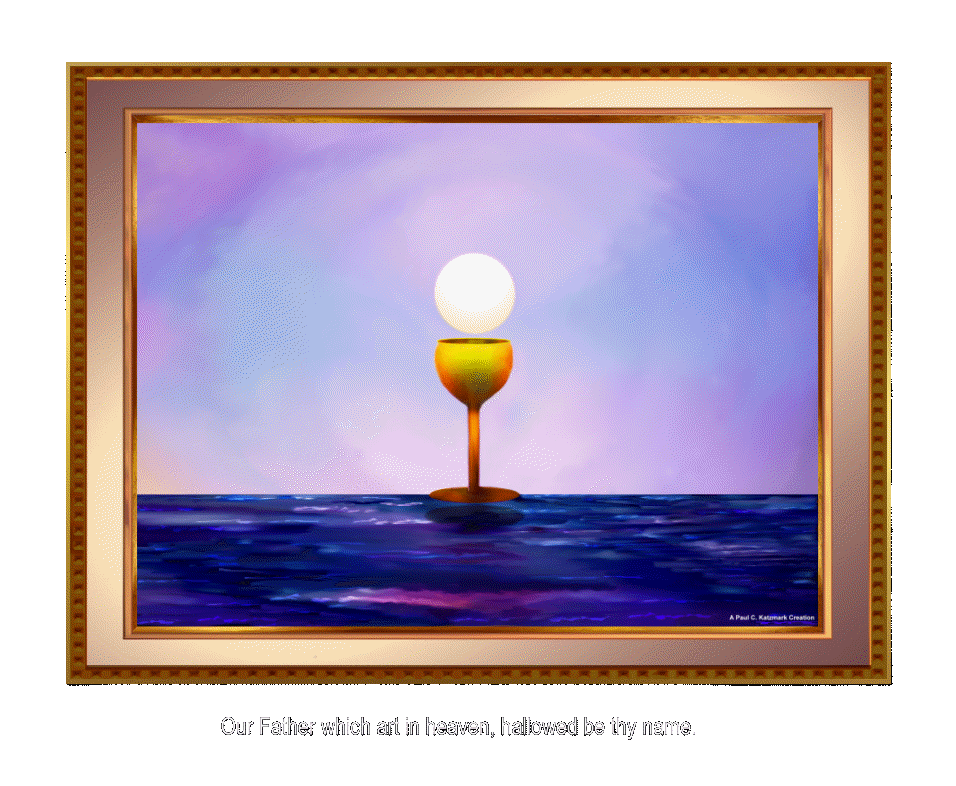
Our Father, for Eternity
Man is like the foam of
the sea,
that floats upon the surface of the water.
When the wind blows,
it vanishes,
as if it had never been.
Thus are our lives blown away by
Death.
~Kahlil Gibran

Our Father which art in heaven, Hallowed be thy name.
Thy kingdom come. Thy will be done in earth, as it is in heaven.
Give us this day our daily bread.
And forgive us our debts, as we forgive our debtors.
And lead us not into temptation, but deliver us from evil:
For thine is the kingdom, and the power, and the glory, for ever.
Amen.
Transubstantiation dogma of the Eucharist
Transubstantiation, in Christian theology, dogma that in the Eucharist the
bread and wine to be administered become, upon consecration, the actual body and
blood of Jesus Christ, even though the external manifestations of the bread and
wine—shape, color, flavor, and odor—remain.
Transubstantiation is a doctrine not only of
the Roman Catholic church but also of the Orthodox church. At the Synod of
Jerusalem (1672), the doctrine was confirmed as essential to the faith of the
entire Orthodox church.
Eucharist, central rite of the Christian religion, in which bread and wine are consecrated by an ordained minister and consumed by the minister and members of the congregation in obedience to Jesus' command at the Last Supper, "Do this in remembrance of me." In the Orthodox and Roman Catholic churches, and in the Anglican, Lutheran, and many other Protestant churches, it is regarded as a sacrament, which both symbolizes and effects the union of Christ with the faithful. Baptists and others refer to Holy Communion as an "institution," rather than a sacrament, emphasizing obedience to a commandment.